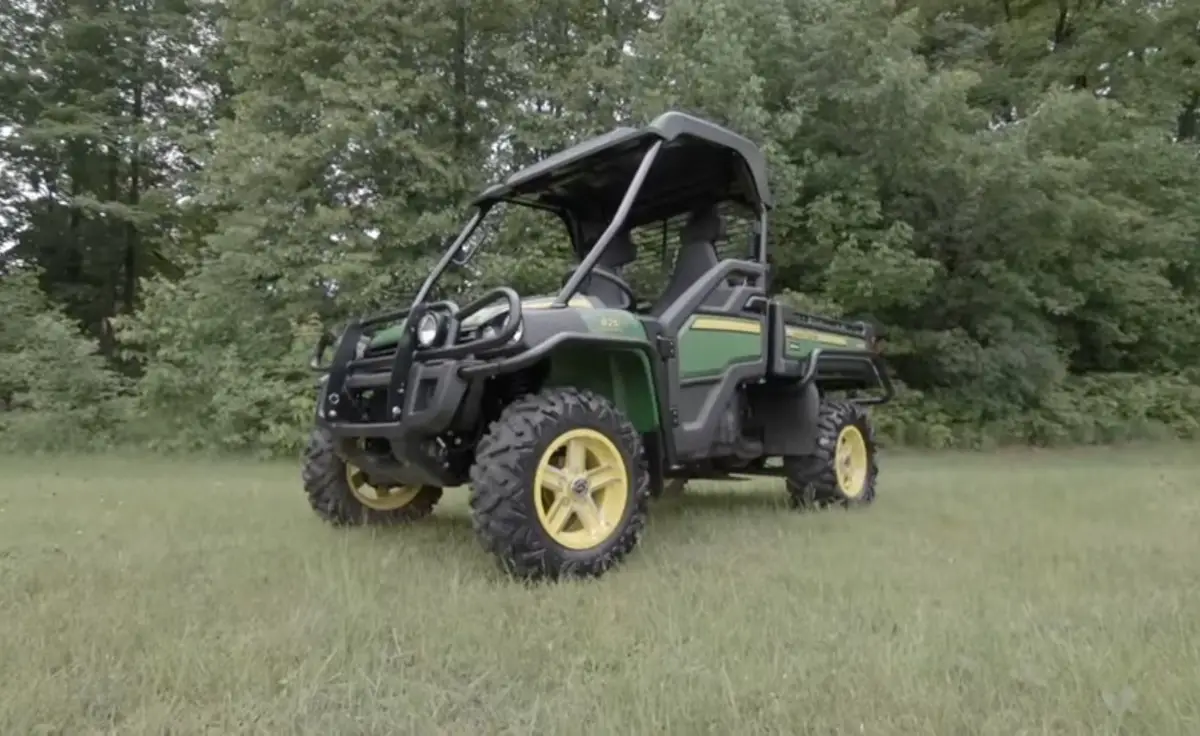Utility Terrain Vehicles (UTVs) are a new addition to farming equipment that is commonly used by farmers, ranchers, and other professionals who work through rough terrain or snow-capped and bumpy roads.
UTVs have become an integral part of farming purposes, like livestock feeding, ploughing and harrowing, spreading seeds and fertilizers, off-road jobs, hauling loads, hunting trips, fencing projects, snow ploughing, and much more.
So if you are in the farming business and you do cultivation, operation, and also manage farms for profit, either as owner or tenant, you are entitled to Tax deductions.
| Age (Years) | Depreciation Rate (%) |
|---|---|
| 1 | 21.00 |
| 2 | 22.00 |
| 3 | 26.70 |
| 4 | 30.27 |
| 5 | 35.98 |
| 6 | 39.54 |
| 7 | 41.15 |
| 8 | 43.16 |
| 10 | 60.00 |
| 13 | 69.00 |
| 15 | 76.00 |
| 20 | 86.00 |
| 29 | 96.00 |
| 30+ | $2,000 |

UTV Depreciation Life IRS as per Year
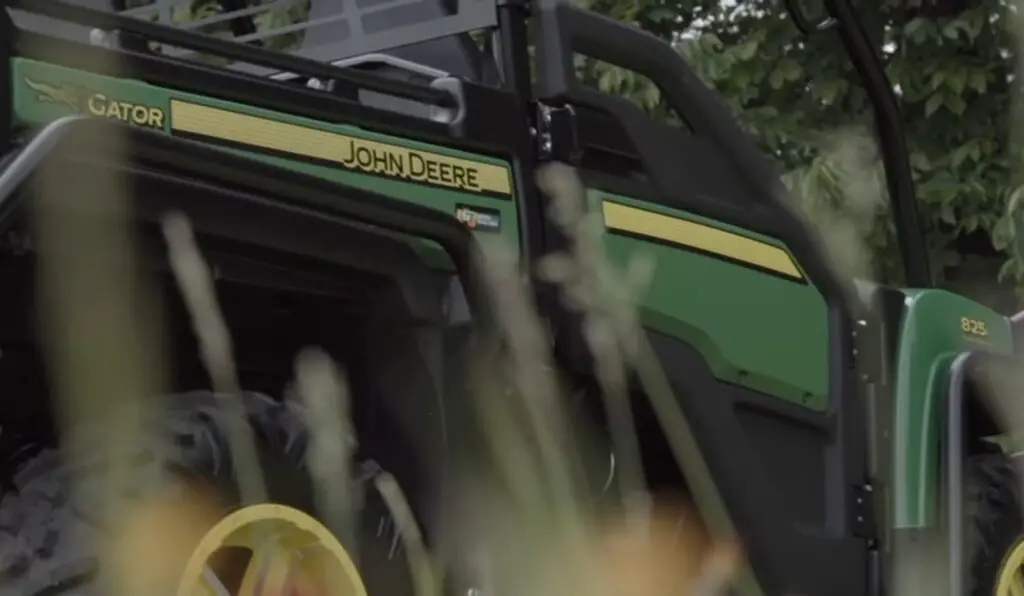
Understanding how Class A motorhomes depreciate over time is crucial for individuals considering the purchase or sale of these recreational vehicles.
Based on an analysis of transactions involving 51 Class A motorhome buyers, the following depreciation schedule provides insights into the expected decline in value over the years.
- One Year Old: The first year’s depreciation is challenging to precisely determine due to frequent trades. Many owners trade in their motorhomes for a different model, leading to varied pricing strategies. As an estimate, a 21% depreciation is assumed.
- Two Years Old: At two years old, a Class A motorhome is expected to experience a 22% depreciation. The similarity in depreciation between one and two-year-old units may be attributed to the relatively new and appealing nature of these vehicles.
- Three Years Old: Anticipate a 26.7% depreciation at the three-year mark. This signifies that approximately 26.7% of the initial purchase price has diminished in value.
- Four Years Old: The depreciation rate increases to 30.27% for a four-year-old Class A motorhome.
- Five Years Old: At five years old, the motorhome is likely to depreciate by 35.98%.
- Six Years Old: Expect a 39.54% depreciation for a six-year-old Class A motorhome.
- Seven Years Old: The depreciation rate is 41.15% for a seven-year-old motorhome.

- Eight Years Old: A Class A motorhome at eight years old experiences a 43.16% depreciation.
- Ten Years Old: The depreciation rate accelerates significantly, reaching 60%. This stage marks a notable decrease in perceived value, potentially influencing buyer decisions.
- Thirteen Years Old: A thirteen-year-old motorhome is likely to depreciate by 69%.
- Fifteen Years Old: Anticipate a 76% depreciation for a fifteen-year-old Class A motorhome.
- Twenty Years Old: The depreciation rate further intensifies to 86% for a twenty-year-old motorhome.
- Twenty-Nine Years Old: At this stage, the motorhome experiences a substantial 96% depreciation.
- Thirty Years and Older: The depreciation essentially stabilizes, hovering around $2,000. Despite its age, a used motorhome retains some value as long as it remains operational.

The problem with owning business equipment is that they contribute to your tax obligation but some farm equipment, such as UTVs can be written off on taxes, reducing the amount you pay for taxes on them.
The ultimate motive of a UTV write-off is to cut back on the cost of running a business.
However to qualify for the tax deduction, one must use the UTV primarily for business purposes only.
There are numerous different options and ways to file a UTV write-off on taxes, but it’s important to know which duty law to file it under.
Hence, it’s important to understand taxes to save your finances on your UTV.

Get full and thorough information about the UTV Exhaust Silencer.
Unsure of how to file for your UTV tax write-off? Worry Not!
Read this article and learn the right ways to claim the UTV tax deduction and get Maximum UTV Tax Write benefits. What is the UTV depreciation life IRS?
The IRS does not specify a UTV depreciation life.
Typically, UTVs are classified under the Modified Accelerated Cost Recovery System (MACRS) as 5-year property for tax depreciation purposes.

These are two major methods to focus on when writing off your UTV on taxes:
Section 179
Section 179 mainly focuses on the deductions made on the purchase price of types of equipment bought during the past tax year.
When you buy a piece any equipment for your business such as a UTV, you can abate the total price from your gross income while filing for taxes.
This tax is levied on both new and old equipment, but it must be new to your business within the tax year.
This initiative is to encourage business owners to acquire the necessary machines and equipment needed to grow their businesses.
There are some limitations that follow while writing off your UTV under Section 179.
First is a ‘Monetary Limit’ which implies that only the equipment that has a value below $1 million is eligible to qualify for this write-off and also that the overall write-off for a business cannot exceed $2.5 million.
The second limitation applies to only those pieces of equipment that are used for business purposes only at least 50% of the year.
Any equipment used for personal use only is not eligible to fall under this tax regime.

Bonus Depreciation
Bonus depreciation is another way to write off your UTV on taxes. This started with a rate of 100% and is predicted to go down every year to reach 20% in 2026.
Similar to Section 179. Bonus Depreciation also demands equipment to be used for at least 50% of business use. Bonus depreciation has no maximum limit.
Using the Bonus Depreciation method of tax filing, the full bonus percentage (100% in 2020) deductions have to be filed for all assets within the chosen asset class, which would not leave any depreciation for upcoming years.
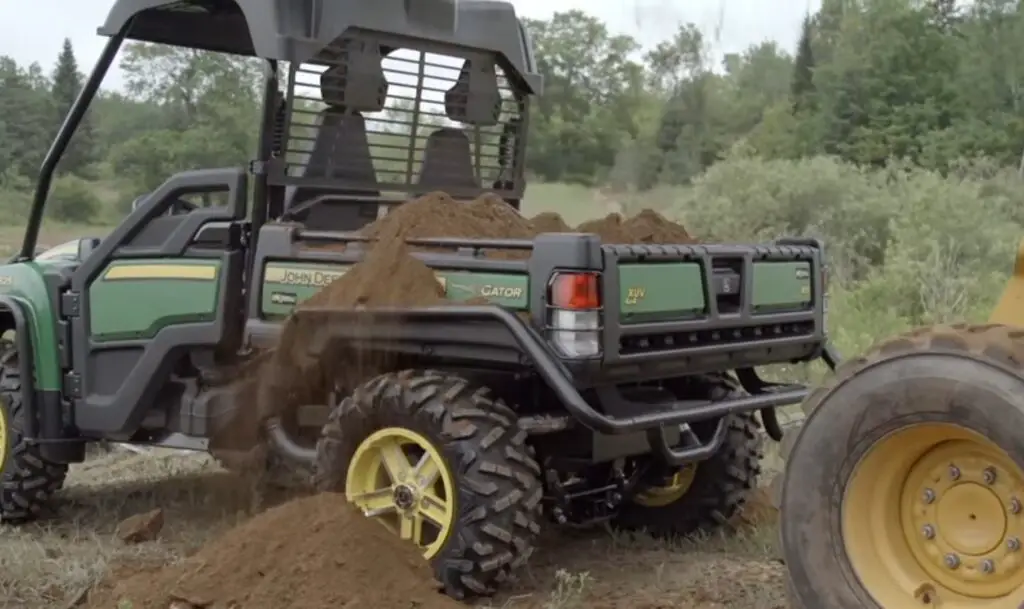
The IRS Rules on UTV Depreciation: Guide
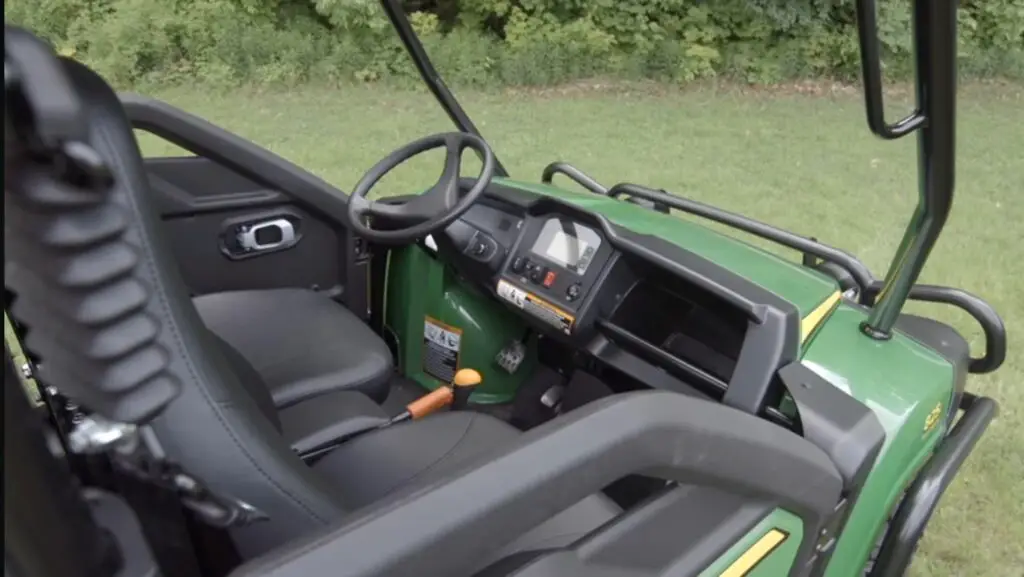
Buying new equipment and upgrading the existing one can help in availing several benefits for your business such as increased efficiency and better employee morale.
Tax rules play an important role in determining which breaks to use, making the equipment affordable to buy as per your need.
By the tax law, it’s necessary to show the Depreciation of the equipment cost is over a set number of years that is fixed by the government.
The reason for filing a tax write-off is to fall under a lower tax bracket and not have to pay so much money in taxes to the government.
The IRS determines what expenses fall under legitimate write-offs on your farm taxes.

Do you want to know what IRS rules to follow for UTV depreciation?
I have got you covered! Go through these requirements which you need to keep in mind while filing or writing off TAX for your UTVs. Read below:
Business Percentage Unit
In order to assess whether your vehicle falls under the TAX bracket you need to maintain track of the mileage of your vehicle. Whether it’s getting used 90% or 70% for your business purposes.
IRS needs you to reflect only that portion of the money that is being utilized for company purposes and not for personal use.
Hence the equipment must be used for commercial purposes more than 50% of the time in order to be eligible under Section 179.

Simply multiply the cost of the equipment by the proportion of business use to determine if it meets the criteria But there are still certain restrictions pertaining to this factor.
First, there is a monetary cap that varies every tax year, for instance, in 2019, it was $1 million per item and $2,500 million overall.
The deduction starts to phase off on a dollar-for-dollar basis once the aggregate limit is reached, and it completely disappears after $3,500 million.
Gross Vehicle weight
This simply implies that if the weight of your vehicle is 6,000 pounds or more, you may deduct its entire value from your taxes as long as it is used exclusively for business purposes and put into operation during the tax year for which you are deducting it.
In 2024, the maximum you may accomplish for any car weighing less than 6,000 pounds is $18,200 in the first year and the remaining amount over a five-year period.

Ordinary and Necessary
The UTV Tax Deduction must be typical and require the type of work you do in order for it to be approved.
If you’re a farmer, for instance, and you use the UTV to transport feed and other agricultural supplies in addition to your other farm equipment, you can surely write it off when filing your farm tax.
In the same way, whether you own a small business and make use of your UTVs in works like livestock feeding, plowing and harrowing, spreading seeds and fertilizers, hauling, or doing fencing projects,
then these are also considered as using the equipment for business purposes making you eligible to write off the taxes.

I wish someone had pointed me to this Post Will The Price Of UTVs Go Down in 2024 before I made the same mistake. The value of knowing what’s reliable and what’s not can’t be overstated.
UTV Depreciation Life: Ultimate Factors Guide
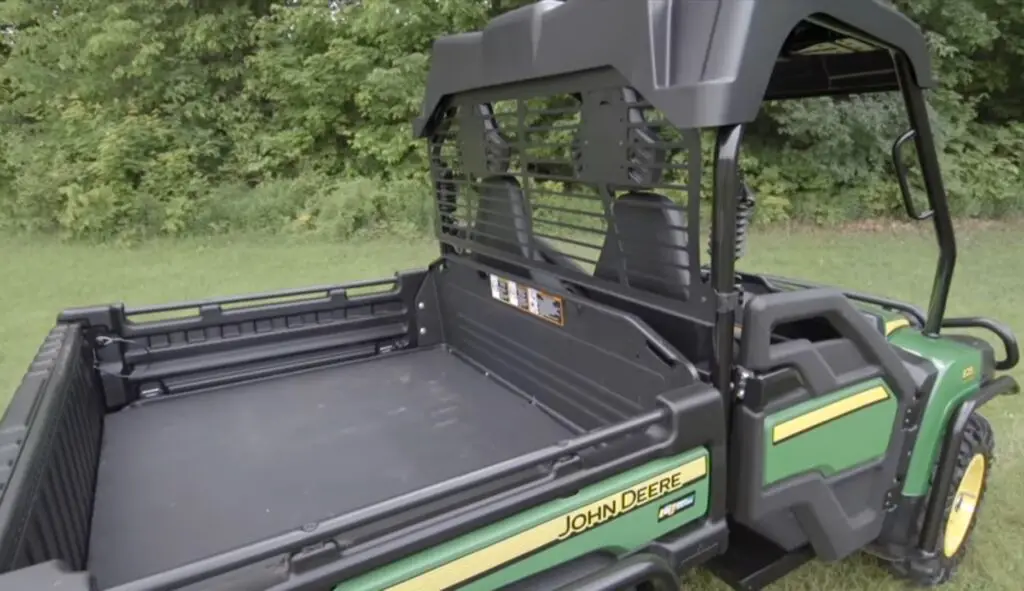
The development of the word ‘Depreciation’ was an idea to account for the drop in asset value over the course of those assets’ expected useful lives. The majority of farm equipment will have a five-year life for tax reasons.
The IRS permits the use of the MACRS which is an accelerated technique used to determine depreciation that distributes the write-offs more over the first few years instead of spreading out the write-off throughout the course of the depreciable life.
You are also free to select straight-line depreciation, which is a yearly deduction of an equal amount. A person cannot just write off the expense of the equipment to his liking.
The general rule implied here is that the cost of the equipment must typically be depreciated over a predetermined period of time determined by tax legislation.
To qualify for a UTV tax write-off, we have summarized the main factors/options to take into consideration for writing off TAX on your UTV.
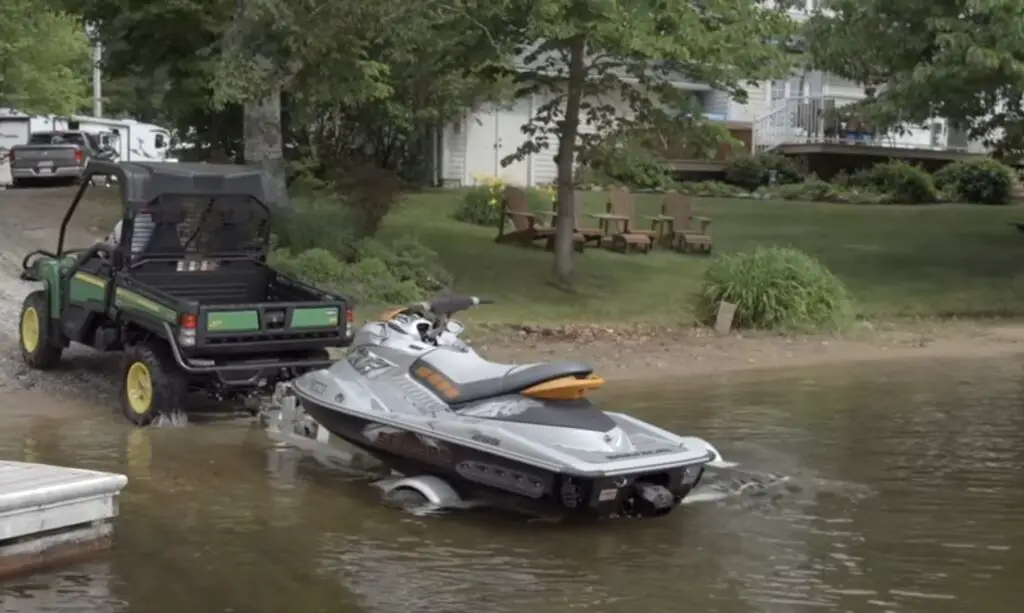
Let’s go through these sections to understand the TAX in a better way:
Section 179 deduction
Also termed as first-year expensing, Section 179 is a write-off for purchases made in the year in which the equipment is purchased and put into use which simply means it is ready for use in a business).
As long as your net income continues to be at zero or above, you are eligible to get deductions of 100% of the equipment’s purchase price up to $1,080,000.
You can deduct the total price of the equipment from your gross income. There is a financial cap set forth in Section 179.
There are caps on the amount you can spend on equipment purchases, which is $2500000 in 2019 but the deductions start to decline on a dollar-for-dollar basis, and at $3500000, the deductions are completely eliminated.
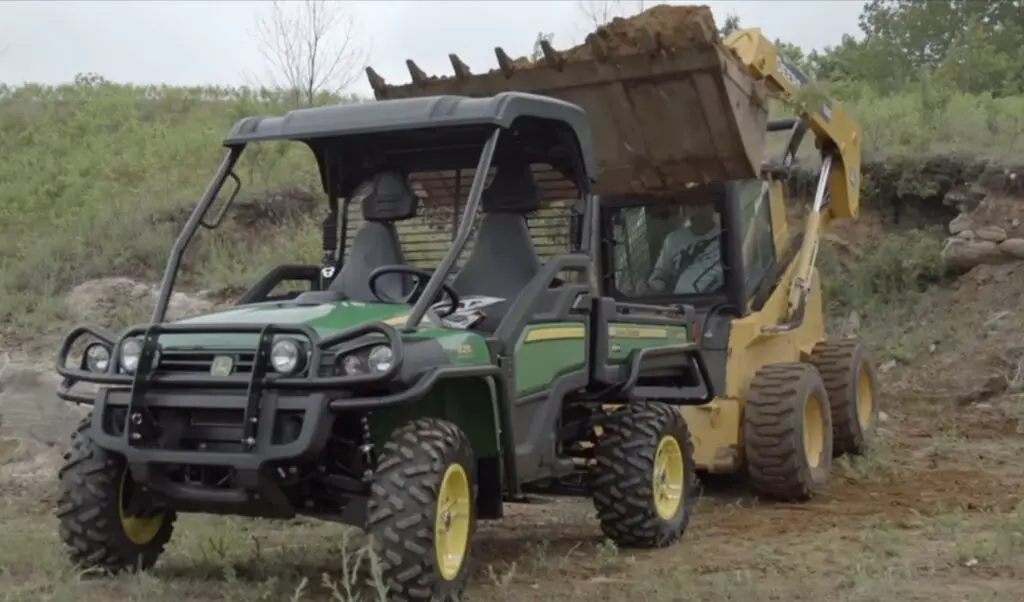
Bonus Depreciation
This Bonus Depreciation deduction is also known as the exceptional or special depreciation allowance which is also deductible in the first year similar to Section 179 but the major attribute where it stands out from the latter is that there is no cap on the amount, and through 2022, it covers 100% of your expenses.
Although the deduction is applied automatically, you have the option of not using it. Currently, until 2023 it is offered at 100%.
Thereafter, it will be offered at a lower percentage each year until it is only offered at 20% in 2026. Like section 179, the usage criteria for qualified equipment must be at least 50% of business purposes.
Recently it has started to apply to both new and secondhand equipment. It is more beneficial for larger businesses and corporations as they frequently exceed the limit stated under section 179.
Bonus depreciation has no dollar limit and, if necessary, can be used in conjunction with section 179.
Regular Depreciation
This is a yearly allowance that distributes the deductions for equipment costs over a specific number of years based on the kind of item and the applicable law.
This is set by IRS Publication which contains the regulations for standard depreciation, the Section 179 deduction, and bonus depreciation.
De Minus Rule
Equipment costs can either be treated as non-incidental materials (things you keep track of but can deduct in full upfront) or capitalized, which involves adding them to your balance sheet.
The de minimis rule only allows small businesses to deduct up to $2,500 per item or invoice and this rule must be specified in a statement that you include with your tax return if you choose to go with this option.

UTV Modifications and Depreciation: Tips
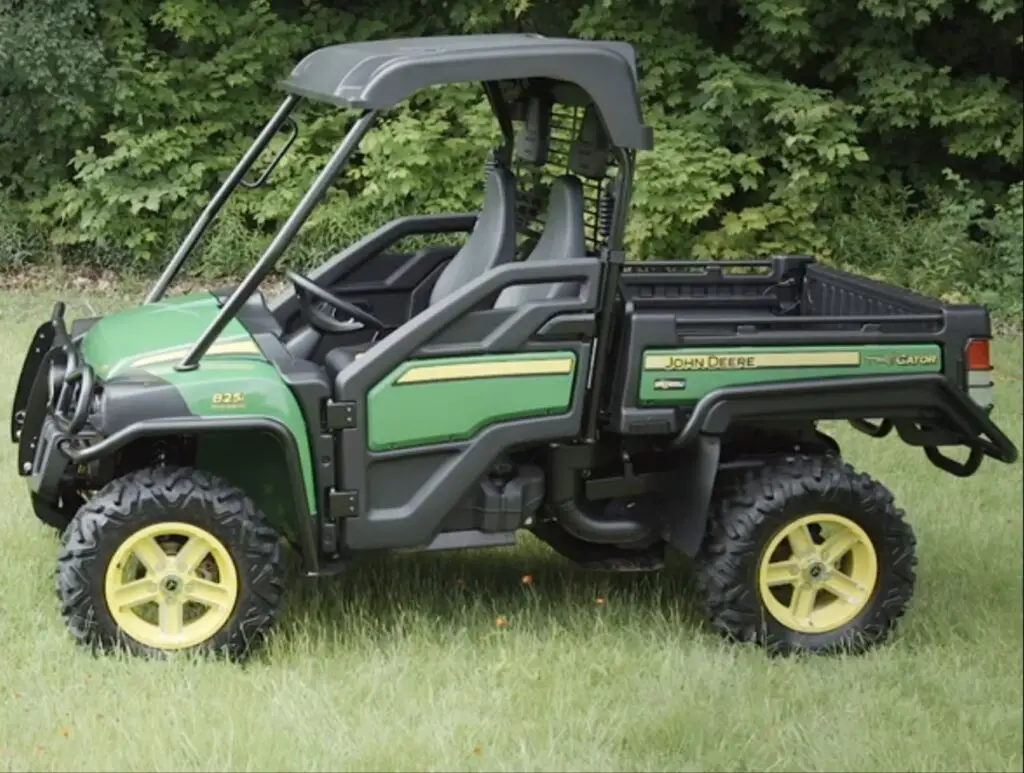
A tax write-off is an essential step in the filing of tax returns for many firms A write-off, is basically any expense incurred for business purposes that is accepted as genuine and can, thus, be subtracted from your taxable income on your tax return.
UTVs are regarded as equipment by the IRS. It makes it logical to pack it full of the parts you’ll need for work, such as a roof, windscreens, cab doors, a winch, a snow plow, and tracks.
There are many modifications that can be done to make your UTV more useful for your business requirements.
As I know the IRS rules apply to all newly purchased UTVs and we are also familiar with the factors to be considered when writing off your taxes,
But here the question is- ‘Will the IRS rules apply to the modified or used UTVs as well? The answer is YES!
Tip: You can even sell a used UTV and fall under the eligibility criteria for Bonus Depreciation according to the regulations.
Bonus Depreciation
Bonus depreciation is another way to write off your UTV on taxes. This started with a rate of 100% and is predicted to go down every year to reach 20% in 2026. Similar to Section 179.
Bonus Depreciation also demands equipment to be used for at least 50% of business use. Bonus depreciation has no maximum limit.
When making tax payments using the bonus-based depreciation method, all assets within the specified asset class must be claimed at the full bonus percentage (100% in 2020), leaving no depreciation for years to come.
A used UTV or modified UTV can also be written off under Tax deductions. A proper record is needed to show a gain on the sell sale of the old vehicle if you purchase a new one by trading in your old one.
Any credit that you receive for the purchase price is regarded as money made from the transaction and falls under a taxable gain if that exceeds the basis of the previous vehicle.
For instance, let’s assume someone paid $30,000 for an old car that now has a basis of $5,000 due to depreciation.
You have a gain of $6,000 that is now taxable ($11,000 minus $5,000) if the dealer grants you an allowance of $11,000 toward the purchase of a new car.
Maximizing Tax Savings: UTV Depreciation Strategies
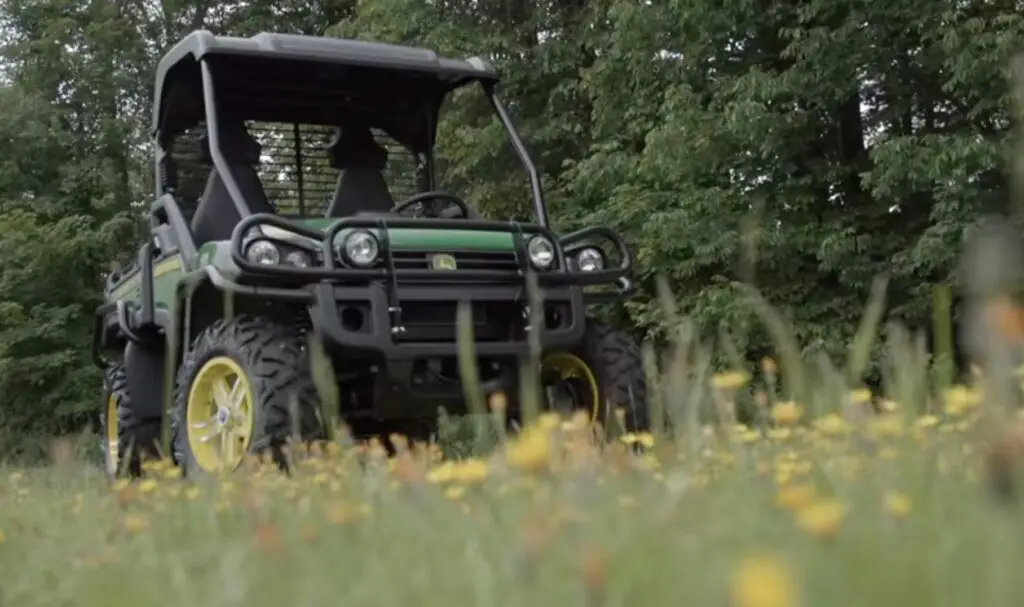
The main strategy to bring into play for saving taxes is understanding the different policies and figuring out how to use them and maximize the most return and save the huge money you give for the taxes.
Section 179 and Bonus Depreciation are the two major cards to play when writing off taxes:
Let’s go through some strategies-
Using both Section 179 and Bonus Depreciation
The question that comes to mind is whether to go for Section 179. Bonus Depreciation or both? The question one may ask here is why go with Section 179 and its restrictions when you get 100% covered for both old and new assets under Bonus Depreciation!
The answer is- Section 179 deduction can be utilized to fine-tune your company’s bottom line while bonus depreciation gives significant savings on your purchases and together they give the most profit on saving money.
These calculations depend from business to business and are based on rigorous analysis of the effects on both the current year and subsequent years.
Accelerated Depreciation
A business owner must take into account the benefit of depreciation that will have the greatest financial impact on the organization before choosing to adopt accelerated depreciation.
Accelerated Depreciation essentially reduces the present tax burden by forgoing future depreciation. Therefore it’s important to consider when to use it.,
There are limited advantages to Section 179 even though it provides more freedom whereas Bonus depreciation has no restrictions, although it could make a corporation “waste” depreciation that it might otherwise use to its advantage.
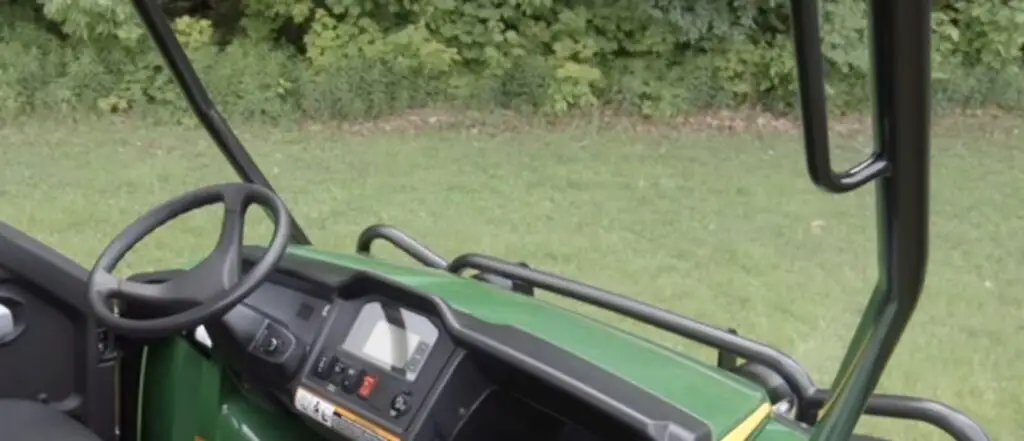
Conclusion
Utility Terrain Vehicles (UTVs) are a new addition to the farming machines that are commonly used by farmers, ranchers, and other professionals who work through rough terrain or snow-capped and bumpy roads.
So if you are in the farming business and you do cultivation, operation, and also manage farms for profit, either as owner or tenant, you are entitled to Tax deductions.
A tax write-off is an essential step in the filing of tax returns for many firms Taxpayers may be able to save money by utilizing the UTV tax deduction.
When filing for taxes, one must use these deductions when owning a UTV.
The ultimate motive of a UTV write-off aims in helping to cut back on the cost of running your business.
However to qualify for the tax deduction, one must use the UTV primarily for business purposes only.
There are numerous different options and ways to file a UTV write-off on taxes, but it’s important to know which duty law to file it under.
Hence, it’s important to understand taxes to save your finances on your UTV.
Imagine finding out too late that you could have saved big by just reading this Blue Book of UTV Values, Tested By Experts. If I were you, I’d make sure not to repeat the mistakes many of us have already made.
FAQs
How does the IRS handle UTV depreciation for personal versus commercial use?
To qualify for the tax deduction, one must use the UTV primarily for business purposes only. IRS rules and Tax Depreciation is not applicable to UTVs that are being used for personal use.
Whether it’s getting used 90% or 70% for your business purposes, the IRS needs you to reflect only that portion of the money that is being utilized for company purposes and not for personal use.
Hence the equipment must be used for commercial purposes more than 50% of the time in order to be eligible under Section 179.
Can I deduct my UTV’s accelerated depreciation?
Accelerated Depreciation essentially reduces the present tax burden by forgoing future depreciation. Therefore it’s important to consider when to use it.,
Accelerated depreciation reduces the book value of your assets as well, which may have an influence on your ability to borrow money by affecting balance sheet ratios.
Additionally, you might have to pay tax on the gain if you decide to sell that asset.
How do I deduct the cost of my UTV on my tax return?
To qualify for a UTV tax write-off, and get deductions on the cost acquired on UTV for Tax returns, these are the parameters to consider while filing for tax returns:
- Section 179 deduction
Also termed as first-year expensing, Section 179 is a write-off for purchases made in the year in which the equipment is purchased and put into use.
As long as your net income continues to be at zero or above, you are eligible to get deductions of 100% of the equipment’s purchase price up to $1,080,000. You can deduct the total price of the equipment from your gross income.
There is a financial cap set forth in Section 179. There are caps on the amount you can spend on equipment purchases, which is $2500000 in 2019 but the deductions start to decline on a dollar-for-dollar basis, and at $3500000, the deductions are completely eliminated.
- Bonus Depreciation
This Bonus Depreciation deduction is also known as the exceptional or special depreciation allowance which is also deductible in the first year similar to Section 179 but the major attribute where it stands out from the latter is that there is no cap on the amount, and through 2022, it covers 100% of your expenses.
Although the deduction is applied automatically, you have the option of not using it. Currently, until 2023 it is offered at 100%.
Thereafter, it will be offered at a lower percentage each year until it is only offered at 20% in 2026. Like section 179, the usage criteria for qualified equipment must be at least 50% of business purposes.
Recently it has started to apply to both new and secondhand equipment. It is more beneficial for larger businesses and corporations as they frequently exceed the limit stated under section 179.
Bonus depreciation has no dollar limit and, if necessary, can be used in conjunction with section 179.
- Regular Depreciation
This is a yearly allowance that distributes the deductions for equipment costs over a specific number of years based on the kind of item and the applicable law.
This is set by IRS Publication which contains the regulations for standard depreciation, the Section 179 deduction, and bonus depreciation.
- De Minus Rule
Equipment costs can either be treated as non-incidental materials (things you keep track of but can deduct in full upfront) or capitalized, which involves adding them to your balance sheet.
The de minimis rule only allows small businesses to deduct up to $2,500 per item or invoice and this rule must be specified in a statement that you include with your tax return if you choose to go with this option.
Subscribe for Our Latest Posts! Thank you!
 Off Roading UTV Off Roading UTV
Off Roading UTV Off Roading UTV
